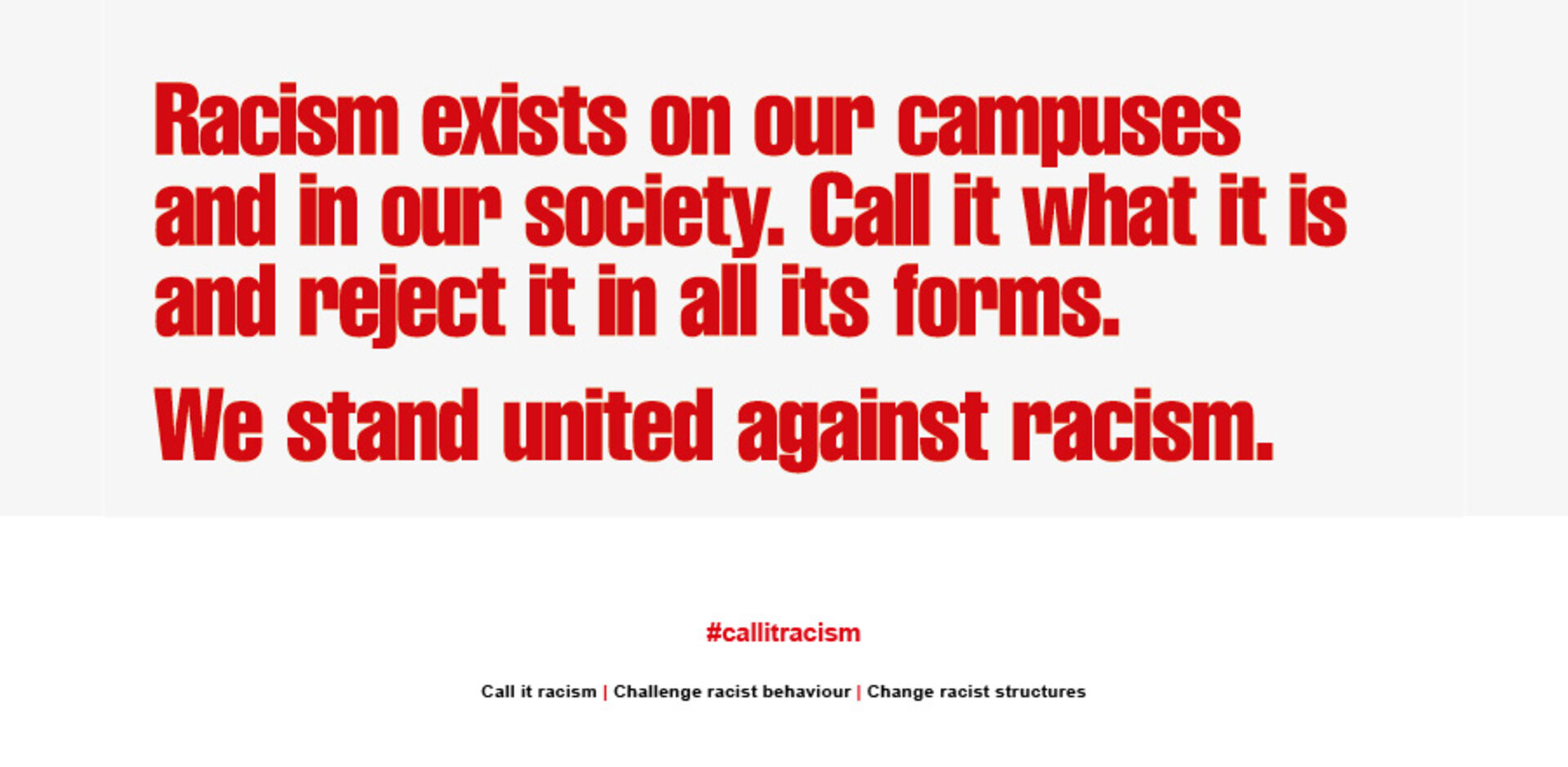Senior managers committed to tackling racism at GCU

GCU’s senior managers, including the Executive Board, have committed to tackling racism in all its forms at the University.
The managers have committed to taking action within each of their areas of responsibility, covering academia and professional services, and across a wide range of areas including the recruitment of more black, Asian and minority ethnic (BAME) staff, decolonising the curriculum, narrowing the attainment gap among students, providing anti-racism and racial equality training for staff and supporting BAME businesses and social enterprises.
This work recognises and seeks to address that racism and racial inequalities exist at GCU, in the wider HE sector and in society, and follows a number of prominent reports from the Equality and Human Rights Commission (EHRC) and Universities UK/NUS.
A dedicated Tackling Racism at GCU group - chaired by Dr Tuleen Boutaleb, Associate Dean International of the School of Computing, Engineering and Built Environment - was established last year to help coordinate the University’s work in this area. A set of nine wide-ranging recommendations to guide future work was approved by the Executive Board and our People Committee, a sub-committee of the University Court, in October 2020. The recommendations were informed by external evidence, internal expertise and the lived experience of the University’s BAME student community as well as academic, research and professional support staff. Each recommendation is championed by an Executive Board member and working groups are now being set up to help deliver them.
The nine recommendations and related areas of work are:
- Ensure that each service and function across GCU makes a commitment to tackle racism and racial inequalities
- Target recruitment of BAME people
- Commit to taking active steps, including supporting staff, to decolonise the curriculum
- Address student attainment gap data by focusing on the sources of structural exclusion rather than the students themselves
- Commit to providing compulsory race and anti-racism-focused training and development on a range of topics for all staff and leaders
- Develop and communicate appropriate, rigorous, and safe mechanisms for the University to receive reports of racism in confidence; and develop and communicate appropriate mechanisms to enable the University’s services and functions to receive feedback
- Support BAME businesses and social enterprises by ensuring that procurement procedures are inclusive and by providing opportunities for partnership working
- Ensure BAME student and staff data are part of regular, mainstream University reports
- Take active steps to communicate and make visible these recommendations and more broadly GCU’s commitment to tackle racism and racial inequalities.
A series of training and development activities are going to be run for staff over the next 12 months to raise awareness of racism and racial inequality, including subjects such as microagressions, white privilege and cultural bias. In March, April and May, all staff are being invited to take part in two online workshops to help them develop awareness and understanding of the impact of intercultural practices, thoughts and beliefs. The workshops form the BIG Project (Being Intercultural @ GCU) and the University’s teaching staff are being encouraged to include them in their modules with students.
GCU is also an active member of Advance HE’s Tackling Racism on Campus initiative and the University’s Principal and Vice-Chancellor, Professor Pamela Gillies CBE FRSE, joined other Principals across Scotland in August in signing up to its declaration:
Racism exists on our campuses and in society.
Call it what it is and reject it in all its forms.
We stand united against racism.
Sunday, March 21, is the United Nation’s Elimination of Racial Discrimination Day.
